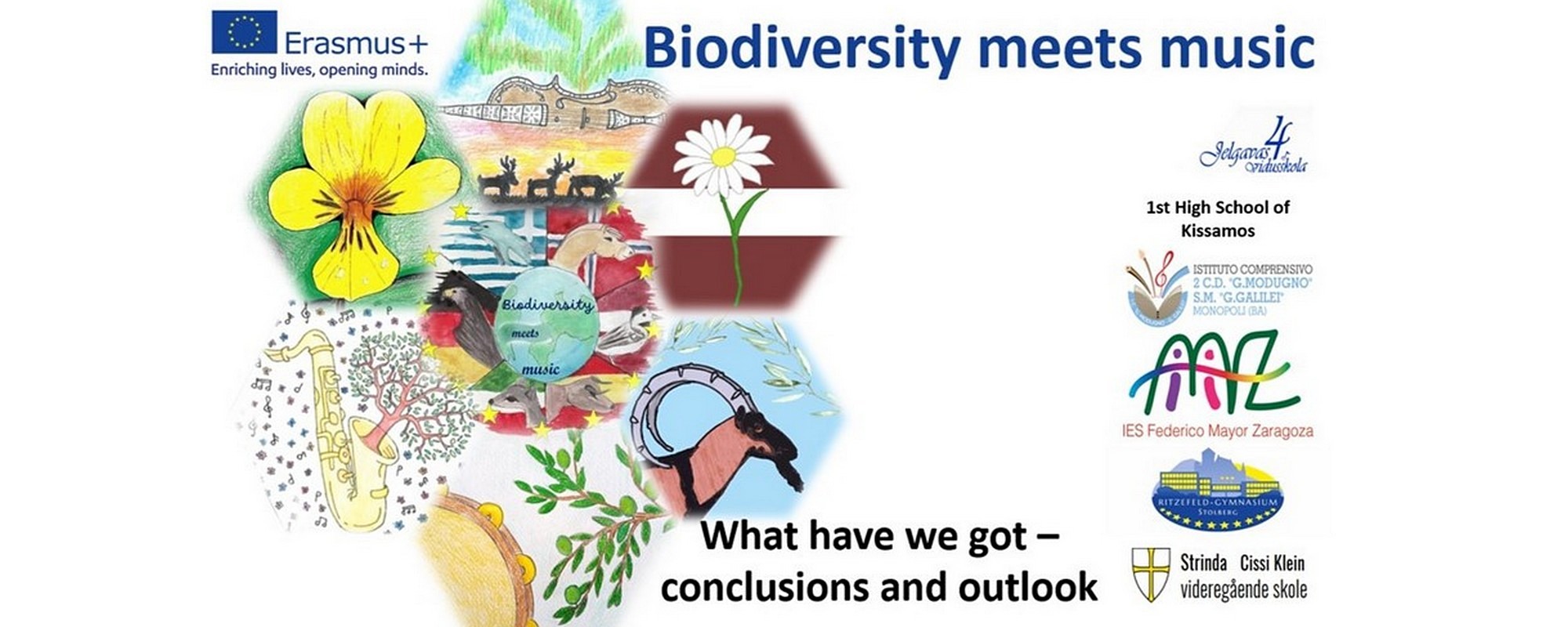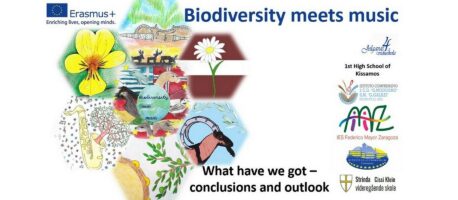230526. After three years of intensive cooperation, the Erasmus+ project “Biodiversity meets music” was concluded with the last meeting of the partner schools at the Ritzefeld-Gymnasium with a comprehensive exhibition documenting the joint work of the participating groups and the meetings at the partner schools, but also with a furious joint final concert.
We can look back on the project with great joy and also a little pride and fulfilment:

From research to action
In the summer of 2018, the idea for an Erasmus project about the decline of biodiversity and about spreading the meaning through musical means as a tool to raise awareness was born. Supported by the school management and the teaching staff, we brought together six teams from Jelgava, Kissamos, Monopoli, Seville, Trondheim, who did not know each other before, started the project, with the Ritzefeld Gymnasium leading and coordinating the application and implementation of the project.
In August 2020, we got the green light from the National Agency for funding from the EU – in the middle of the pandemic, the course of which no one could have foreseen. The COVID19 pandemic spread across Europe at the end of January 2020, followed by eight waves of infection. The first planned meeting of the coordinators already had to be postponed and we had to learn that no mobilities would be possible for a long time. Our planned trips in spring 2022 were also affected by the pandemic and stood on shaky ground. But we managed to carry out all the planned mobilities in the next few months: In March 2022 we had the first exchange to Kissamos, in April to Seville and in May we had our partners here in Stolberg. In September 2022 we met in Jelgava, followed by Monopoli in November. Just before the Easter holidays, we had a good time in Trondheim before meeting at our school for the last time in the second week of May to prepare for the exhibition and for the joint concert.
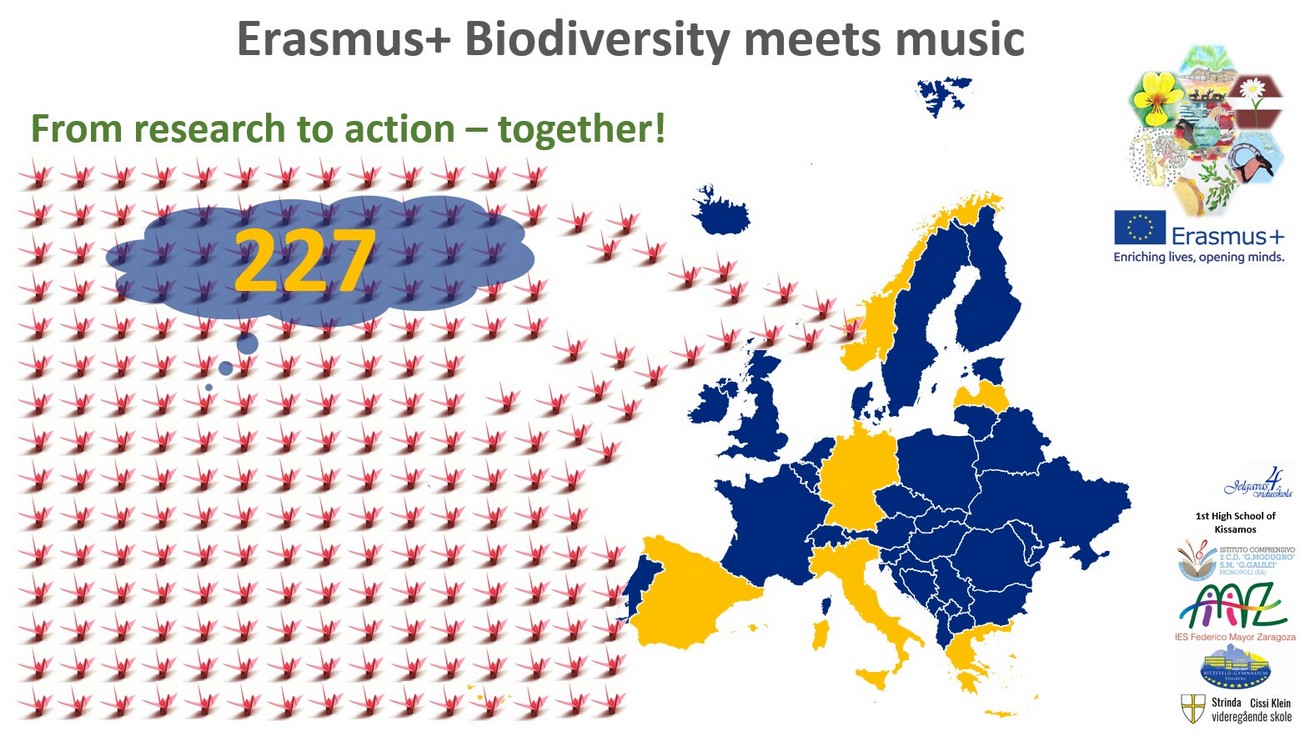
In view of the conceivably adverse circumstances at the beginning of the project, we were very happy that we were able to travel after all. In total, almost 230 people were involved in the project, which we symbolically crafted as cranes in an origami workshop and decorated the auditorium with them. Not all “cranes” had the opportunity to travel, but we hope that all those who could not travel were able to take something away from the project for themselves. Dr Ostrowski (project coordinator) remembered well that one week before the first meeting in Kissamos the german team wanted to cancel their participation because of the opaque situation at Covid 19 and the daily changing rules. In the end, they took the risk of travelling with students anyway. And then, on a Wednesday evening, sitting upstairs against the wall of the town hall hall in Kissamos, he really realised the dimension of the project for the first time: “Wow! Now you are sitting in a town hall in Kissamos, Crete, and about 50 people, most of whom didn’t know each other before, have come here from all over Europe and are presenting their ideas and their work on an idea that was born in our staff room in the beginning! How cool is that!”

Nature
Anyway, we have embarked on a remarkable journey over the past few years with the six partner schools from different corners of Europe. Together we have addressed the urgent ecological problem of biodiversity loss and the threat to the balance of our planet’s ecosystems. Through a shared passion for music, we have endeavoured to make a significant contribution through musical means, not least by drawing attention to this issue with the final concert.

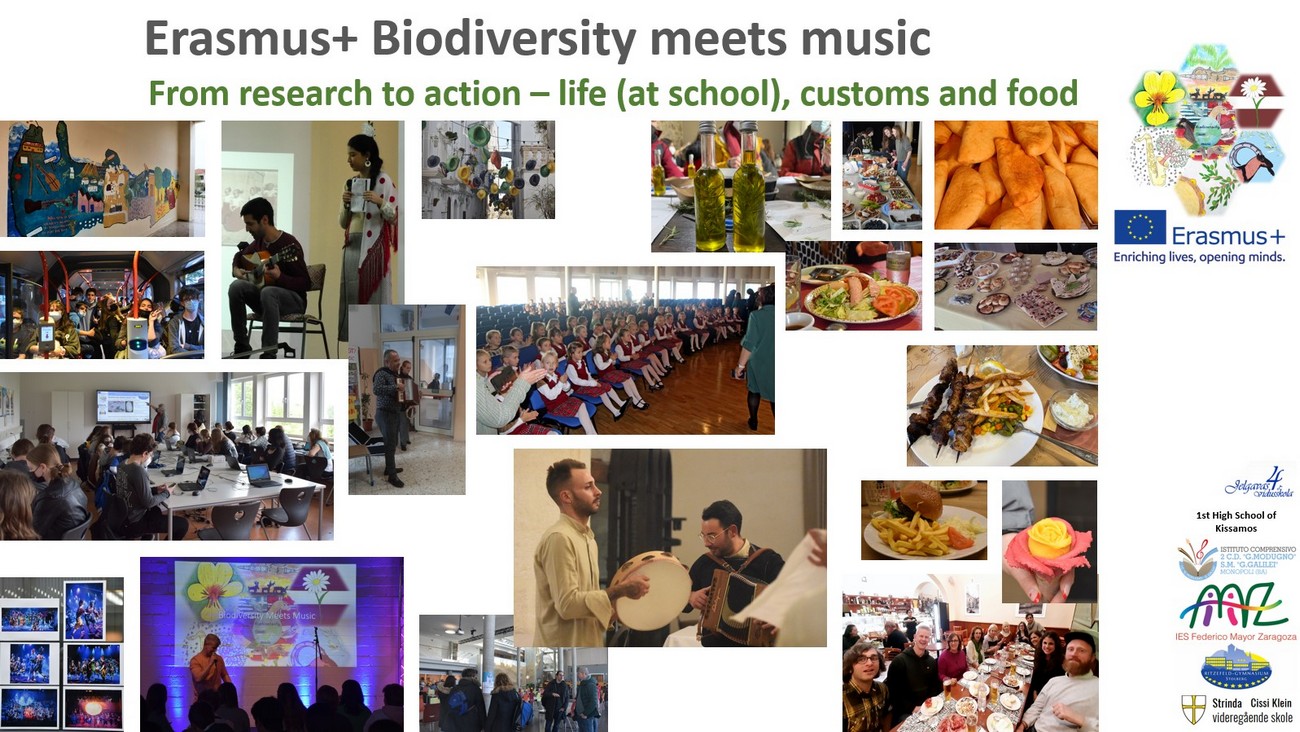
History, architecture and art, modern life and customs – in short: culture.
The project offered unique and enriching experiences. First and foremost, it has fostered intercultural understanding and friendships between the different groups of students. We had the opportunity to learn from each other, exchange ideas and broaden our horizons by immersing ourselves in other languages, cultures and traditions. This intercultural exchange has not only enriched our lives, but also promoted tolerance, acceptance and mutual respect, hopefully creating lasting bonds that will last beyond this project.

Music and dance
Working together, we found new innovative ways to use music and dance as universal languages and as a powerful tool to raise awareness on the chosen issue. These led to musical compositions, performances and awareness-raising campaigns that reached a wider audience.
But there was so much more!
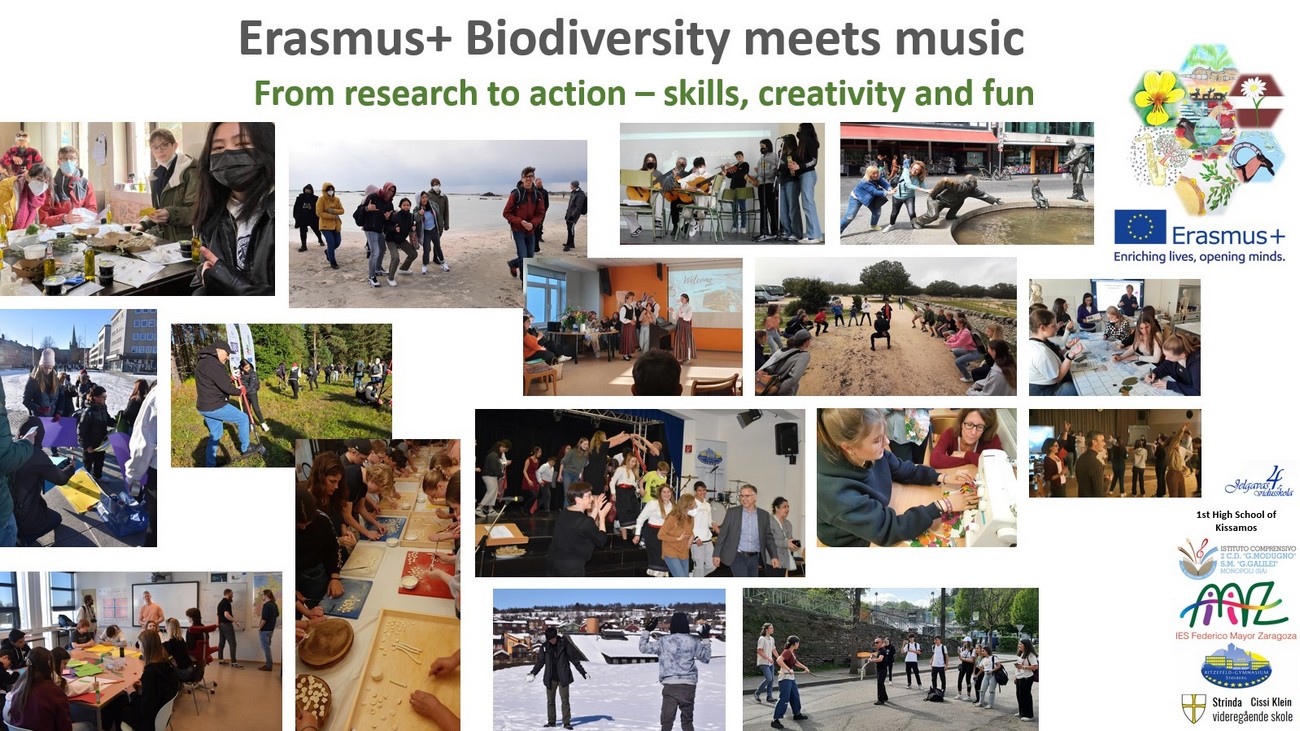
In addition to the scientific-academic and cultural aspects, the students and teachers involved have also benefited from the project in the personal and social spheres, e.g. by further developing important skills such as teamwork, communication, problem solving and adaptability. We have learned to appreciate diversity and accept differences, which is an important life skill in today’s globalised world. We have also become more environmentally aware and responsible citizens who understand a little better the need to protect and conserve biodiversity.

Hospitality
Our partners, especially the teachers and coordinators, deserve our heartfelt thanks for their commitment, dedication, enthusiasm, expertise and hospitality during the project. Our students, who have worked creatively and enthusiastically in the Erasmus group, have also made their contribution, of which they can be proud. And maybe some of them will carry this “Erasmus spirit” further, perhaps on other topics and in other encounters.
René Ostrowski, Project Coordinator
Total list of all participants
But the last words should have our students:
Latvian Group
Monopoli Group
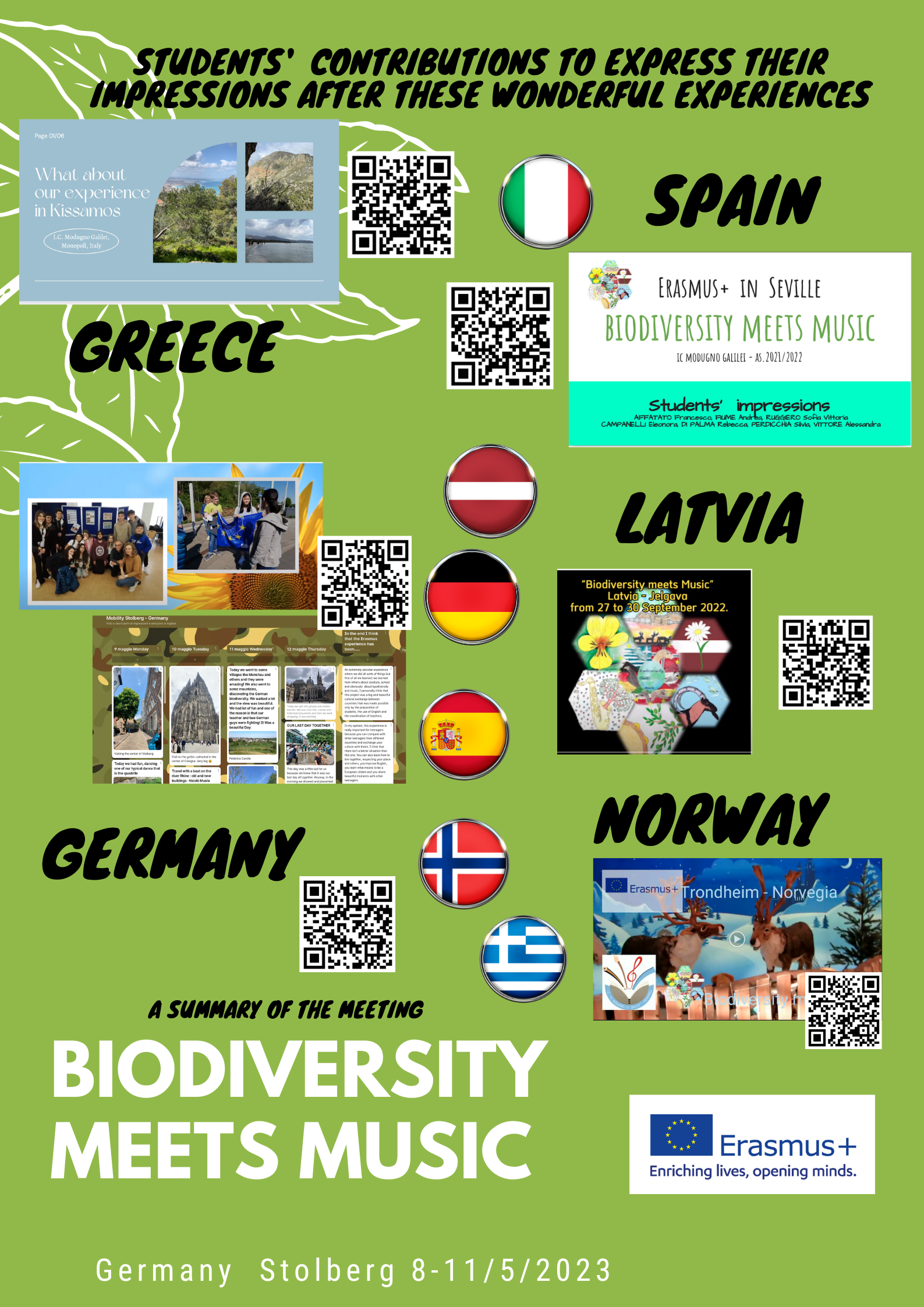
Links
